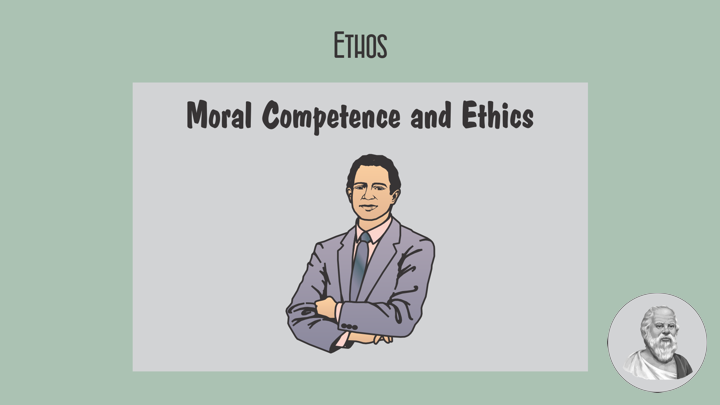——
#LucPaquin #Spirituality #Philosophy #Ethos #WorkLifeBalance
——
——
Ethos
Ethos is a Greek word meaning “Character” that is used to describe the guiding beliefs or ideals that characterize a community, nation, or ideology; and the balance between caution, and passion. The Greeks also used this word to refer to the power of music to influence emotions, behaviors, and even morals. Early Greek stories of Orpheus exhibit this idea in a compelling way. The word’s use in rhetoric is closely based on the Greek terminology used by Aristotle in his concept of the three artistic proofs or modes of persuasion. It gives credit to the speaker, or the speaker is taking credit. In modern usage, Ethos denotes the disposition, character, or fundamental values peculiar to a specific person, people, corporation, culture, or movement. In Rhetoric, Aristotle establishes three primary modes of argument: Ethos, Logos, and Pathos.
Aristotle is credited with developing the basics of a system of rhetoric that “Thereafter Served As The Touchstone” of the discipline, influencing the development of rhetorical theory from ancient through modern times. Like the other works of Aristotle that have survived from antiquity, the Rhetoric seems not to have been intended for publication, being instead a collection of his students’ notes in response to his lectures. This dialogue offered Aristotle, first a student and then a teacher at Plato’s Academy, a more positive starting point for the development of rhetoric as an art worthy of systematic, scientific study. In contrast to the emotional rhetoric and poetry of the sophists was a type of rhetoric grounded in philosophy and the pursuit of enlightenment.
In a sense, Ethos does not belong to the speaker but to the audience and it’s appealing to the audience’s emotions. Thus, it is the audience that determines whether a speaker is a high or a low Ethos speaker. Violations of Ethos include:
- The speaker has a direct interest in the outcome of the debate.
- The speaker has a vested interest or ulterior motive in the outcome of the debate.
- The speaker has no expertise.
This is broadly the function of Ethos in commercials.
- When an esteemed public figure endorses a product, it validates it to the end consumer.
- An Ethos advertisement plays off the consumer’s respect for a given spokesperson.
- Through that respect, the spokesperson appears convincing, authoritative and trustworthy enough to listen to. Of the types of persuasive techniques in advertising, Ethos is best used to unlock trust.
Luc Paquin

